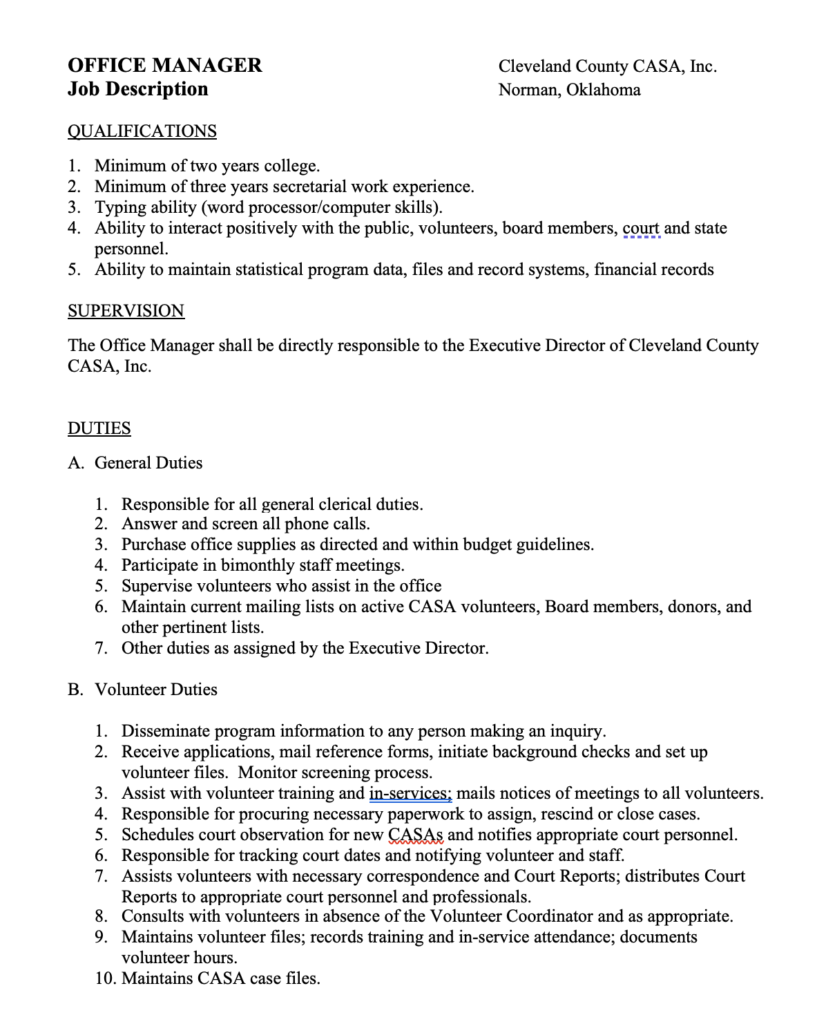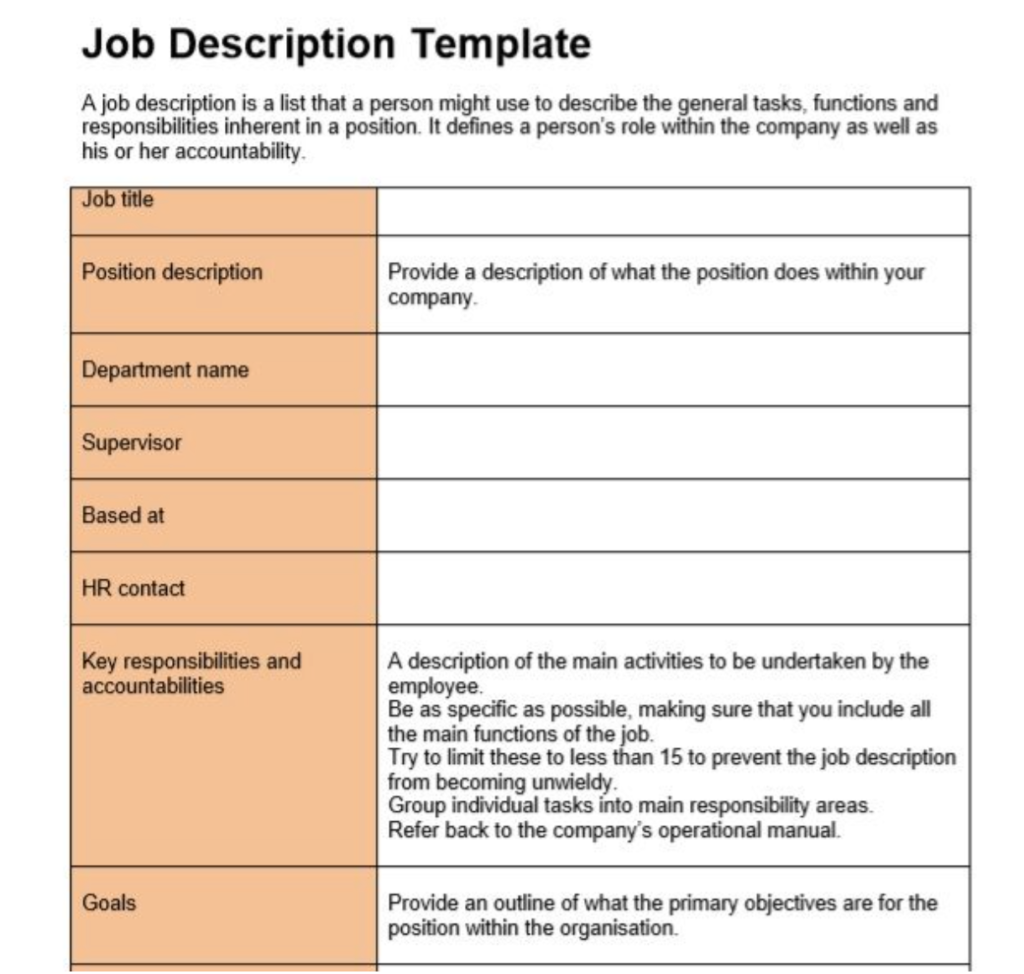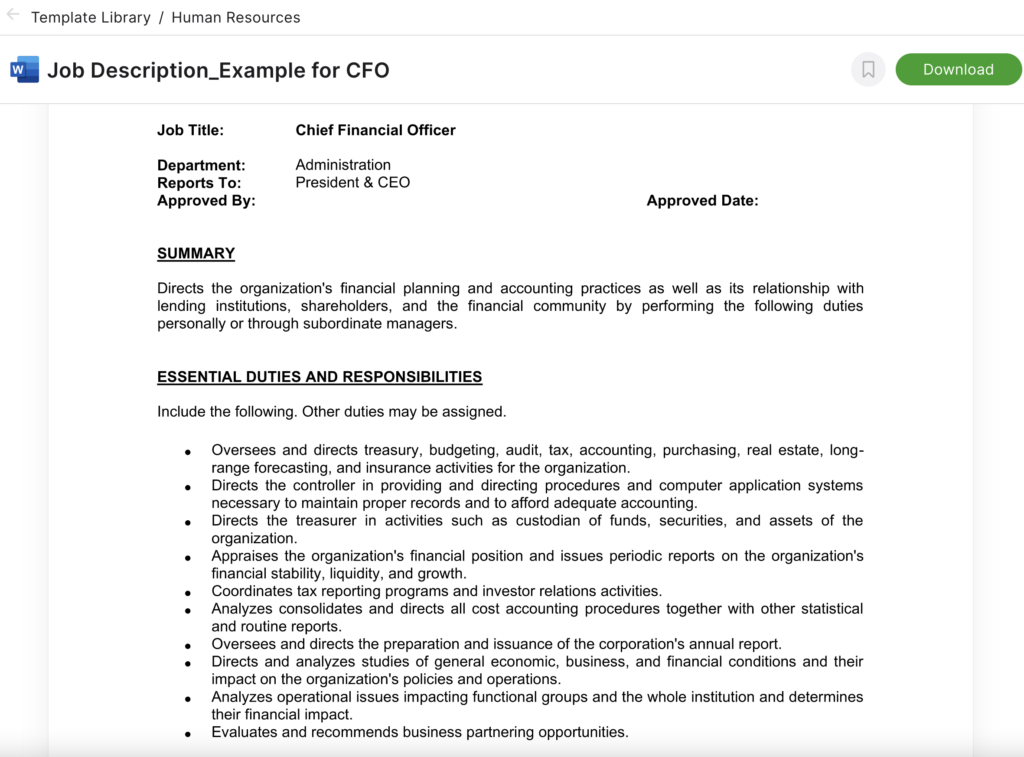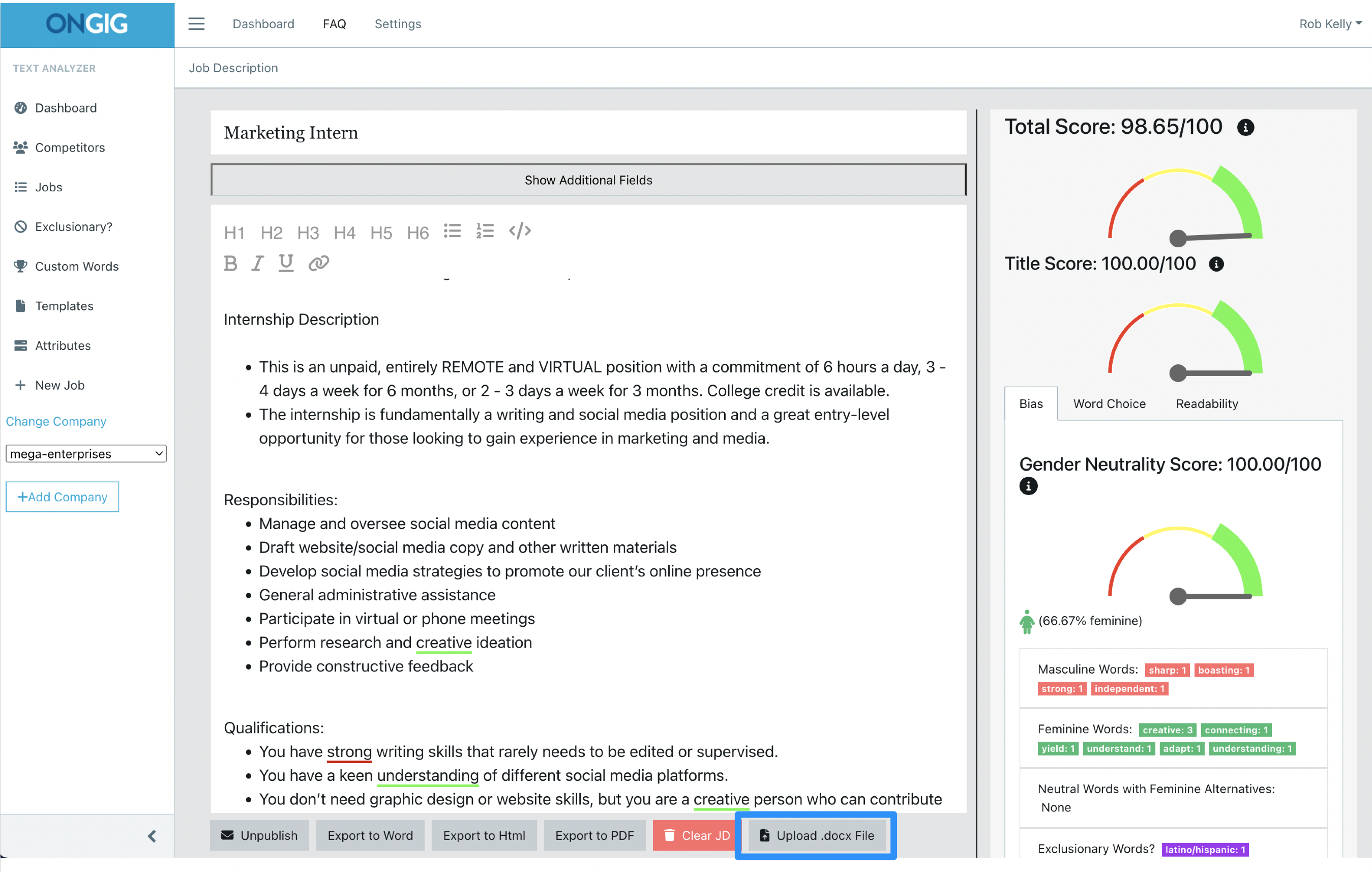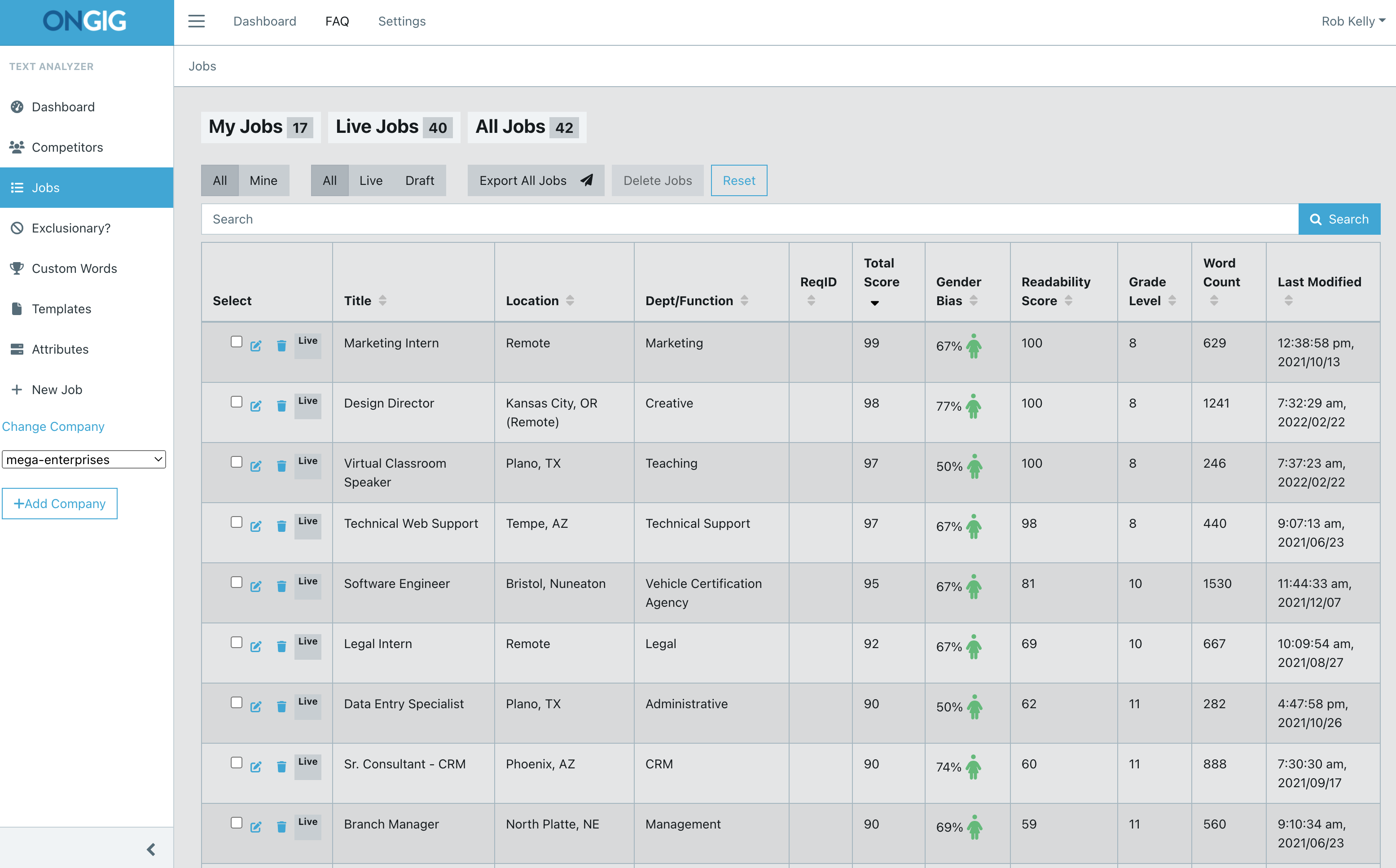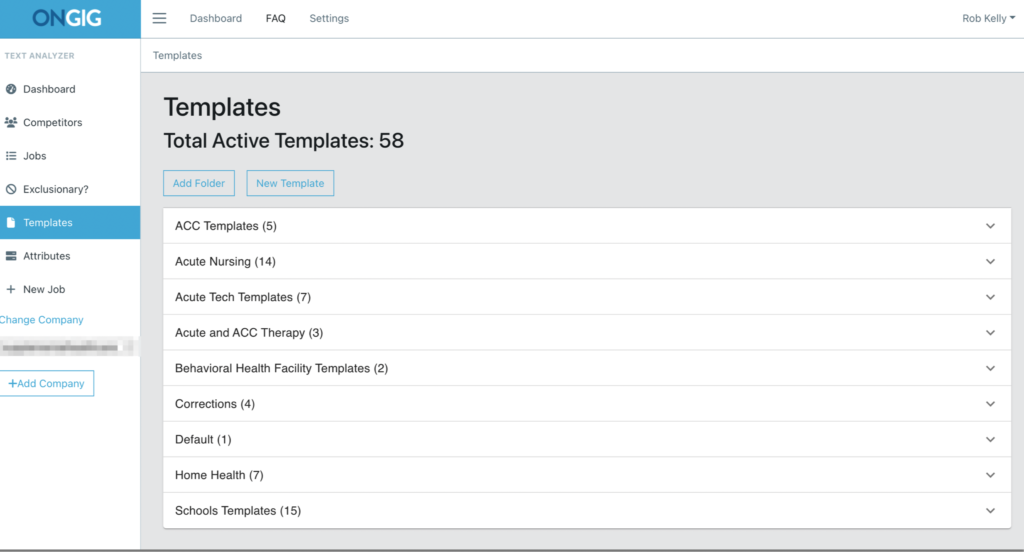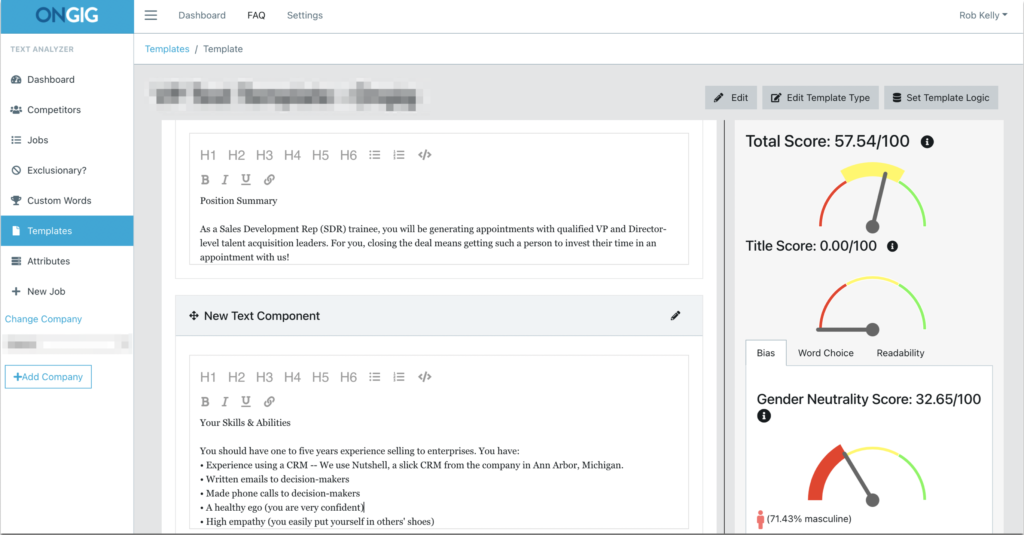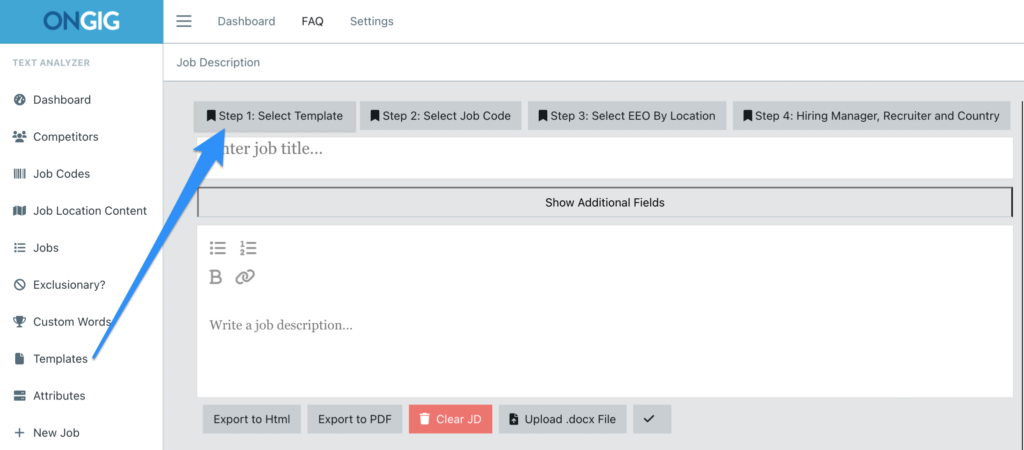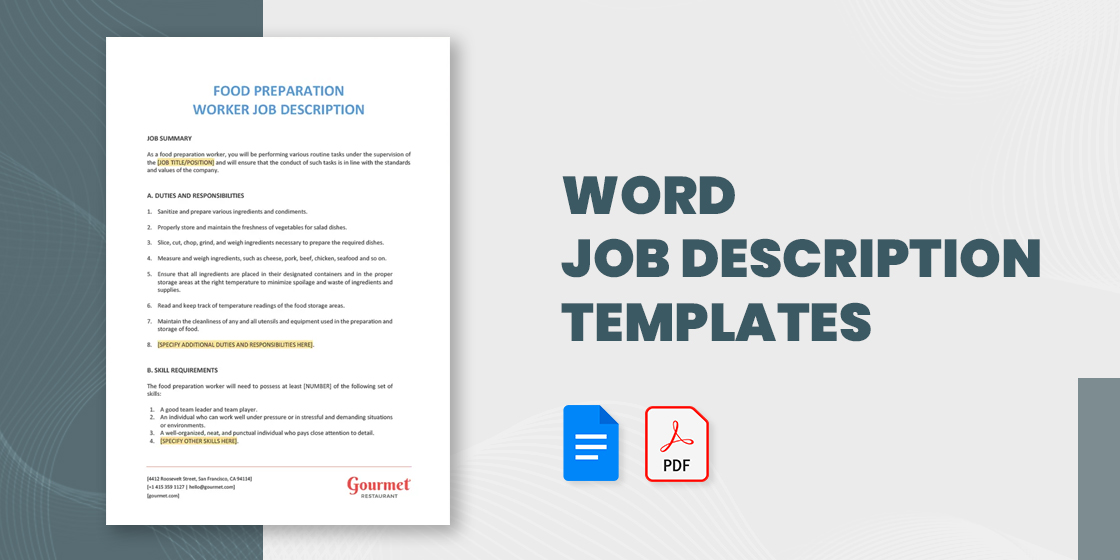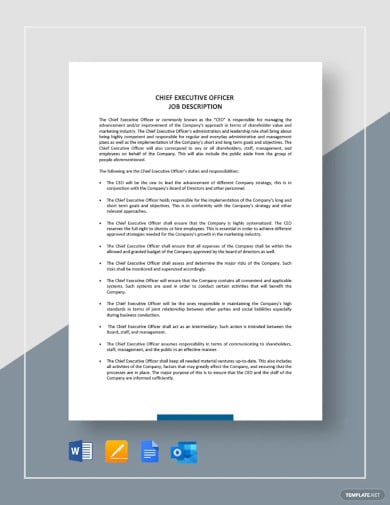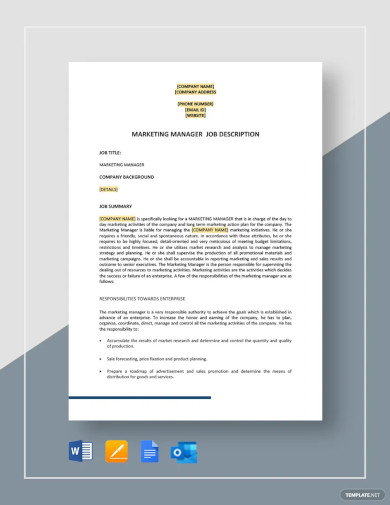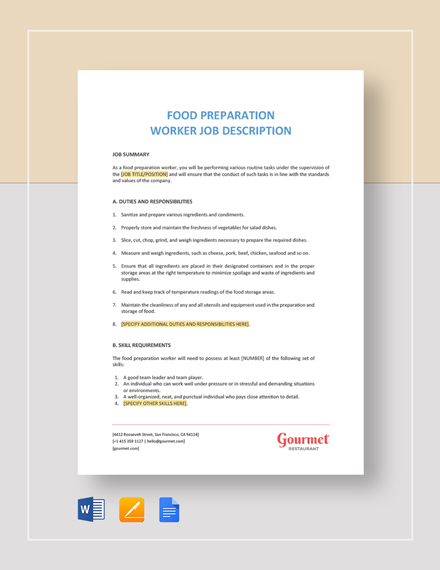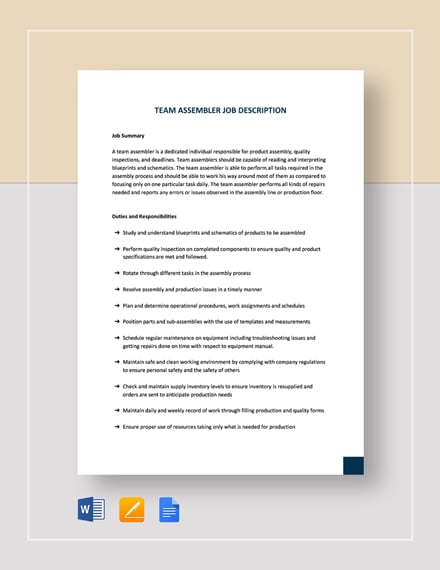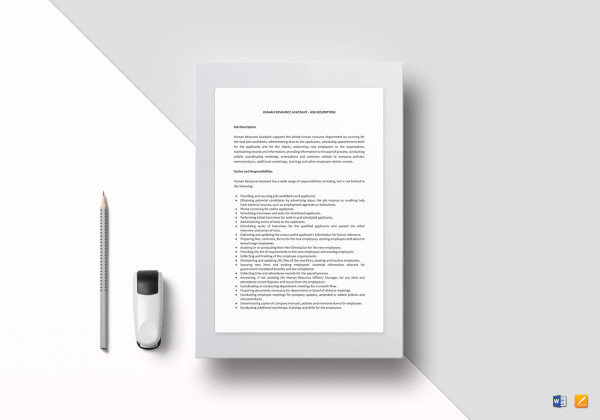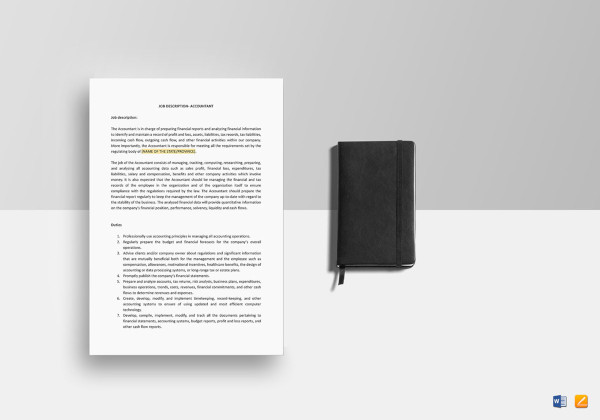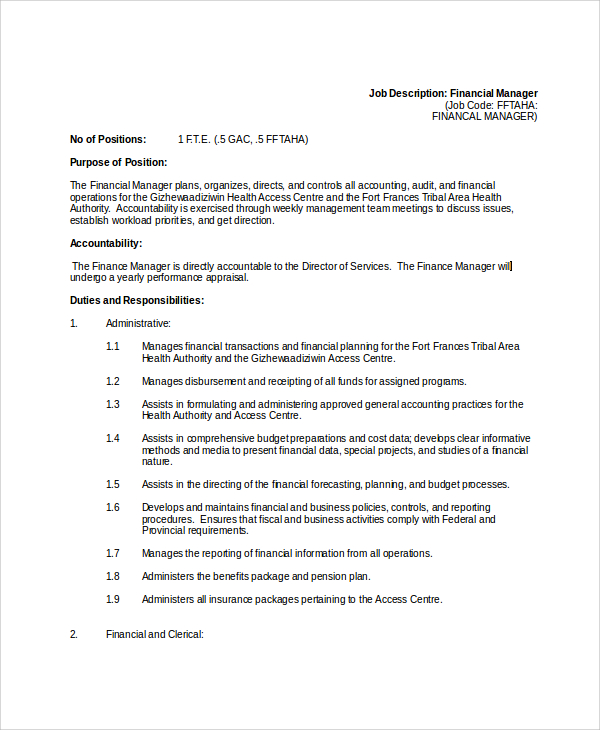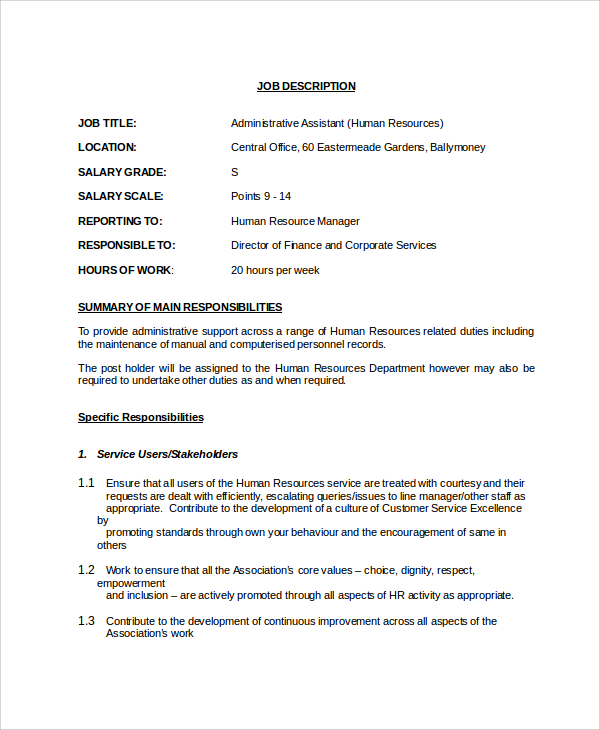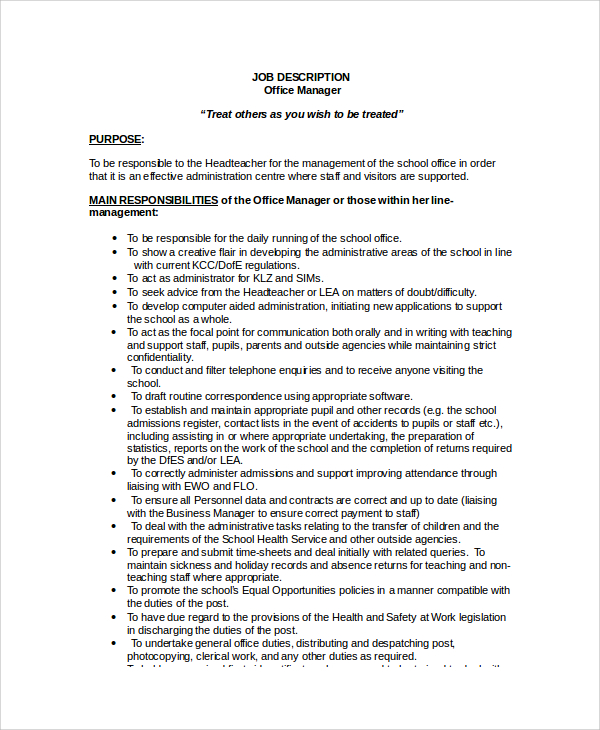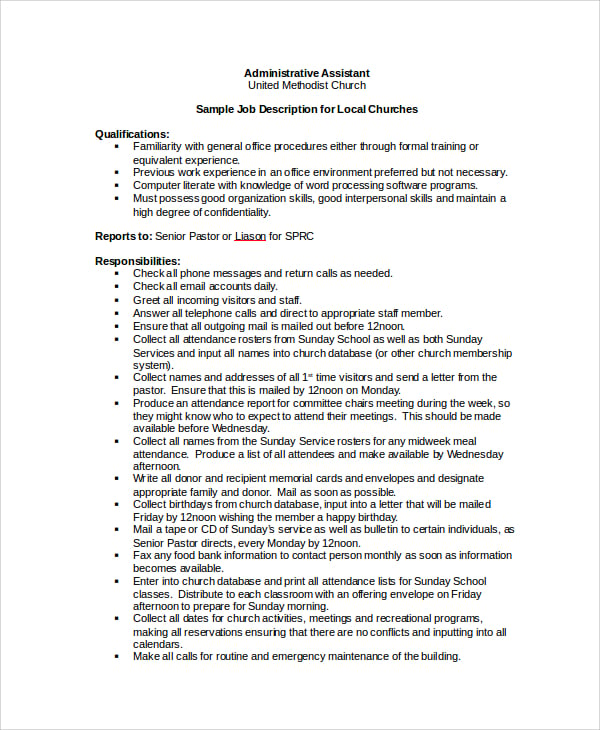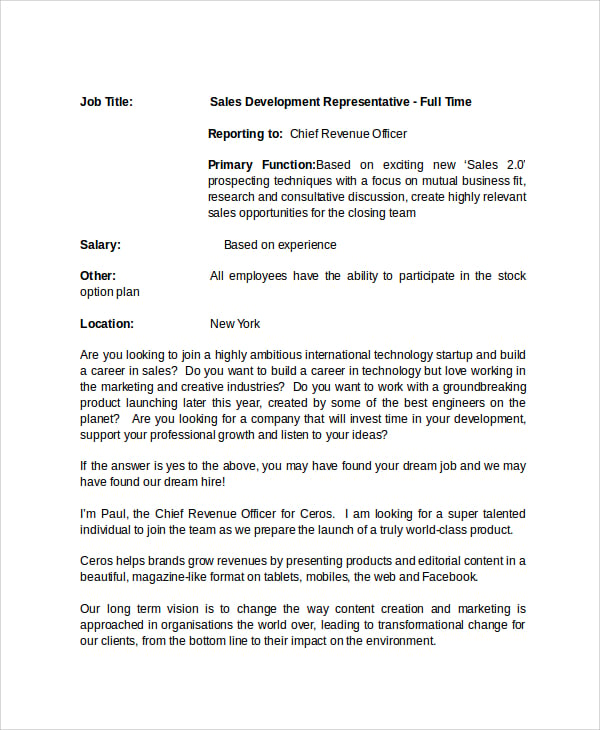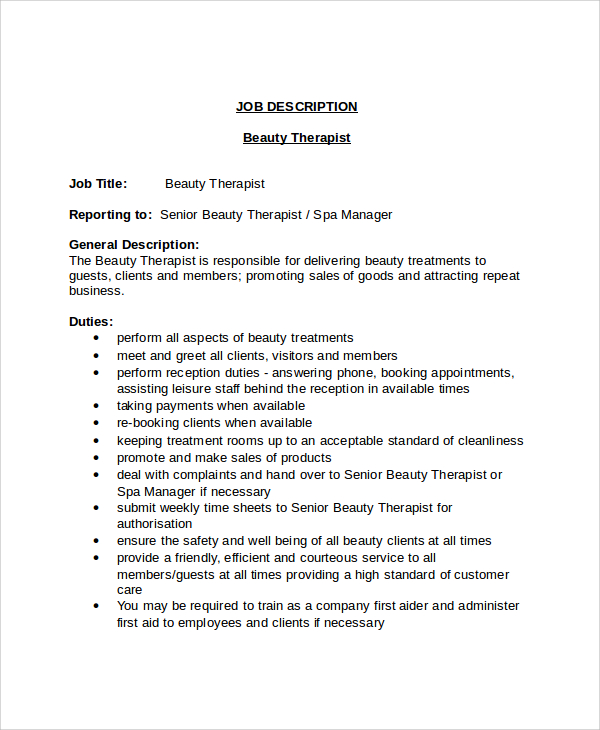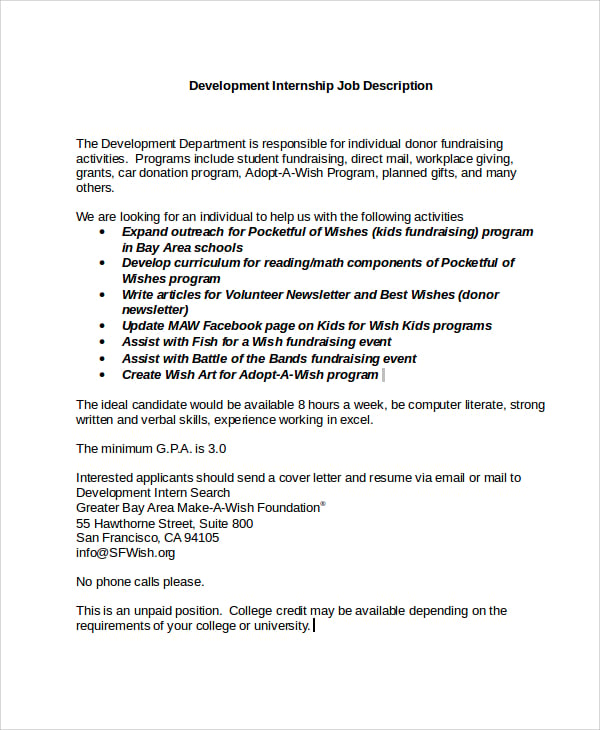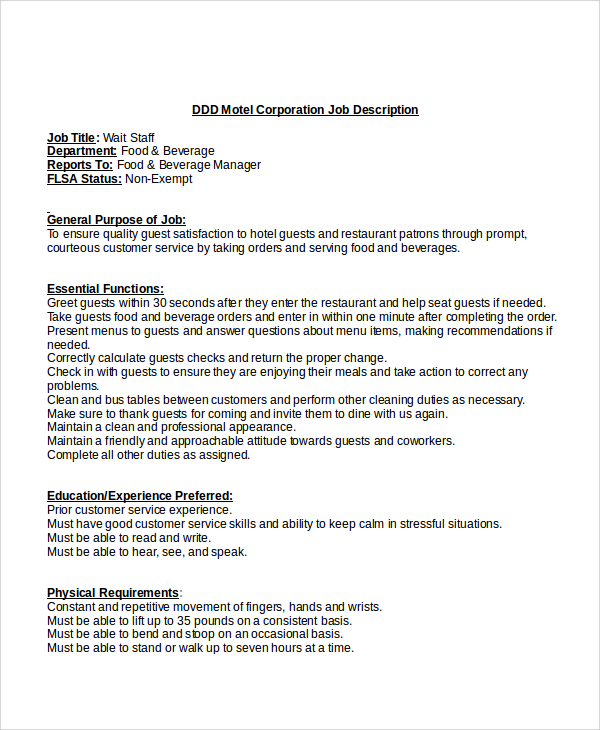Are you working? Do you have a job? Do you know how to talk about your job in English?
In the following guide, I want to show you what to say and how to say it when talking about your job.
You may be required to talk about your job at a party or a social event. But you may also have to talk about your job if you are changing from one company to another and having interviews.
In any situation, if you are working you should be able to express yourself in English when talking about your job.
Let’s dive right in.
Questions about Work
In a social setting — at a party or over dinner — someone may ask you about your job.
They could use one of the following questions:
- What do you do?
- What do you do for a living?
- What is your job?
- What line of work are you in?
All of these questions mean the same thing — what is your job?
The first question is probably the most universal question that people ask when talking about work and jobs.
Let’s look at how to answer these questions and provide more information about your job.
I’m a …
So what to say?
Well, you just say the name of your job.
- I’m a teacher
- I’m an engineer
- I’m a website designer
- I’m a bus driver
- I’m a project manager
- I’m a farmer
Whatever your job is, you just say the name of it as in the examples above.
I work for a …
Another way you could answer the question — what do you do? — is to say the kind of place where you work.
This may not tell the other person what your job is, but they can get a clearer picture of what kind of work you are in.
- I work for a community college
- I work for an online English company
- I work for a training company
- I work for the local council
- I work for myself
So if I were to say the first answer — I work for a community college — the other person might think I am a teacher, or maybe an assistant, or doing some administration work in the college.
But they would understand that I am working in a place of education.
If I said I work for the local council, they would realise that I am a government employee — but I could have any kind of job.
And finally, if I said I work for myself, then they would know I am self-employed and don’t work in a company or for anyone else. I am independent.
I work in…
With this phrase, you can talk about two different things about your work.
- The fields of work you are in
- The department in your company you work in
So if you were talking about the field of work you are in, you could say one of the following:
- I work in advertising
- I work in sales
- I work in agriculture
- I work in the fashion industry
- I work in the tech industry
The field is the general area of work that you are in. You are usually trained or educated to work in this field.
But you can also use this phrase to talk about the department where you work:
- I work in the sales department in a car company
- I work in the marketing department of a cosmetics company
- I work in the design department of a sports company
When using the phrase this way, you usually have to say what type of company it is.
I’m in…
Sometimes, people just use a more simple expression:
- I’m in sales
- I’m in marketing
- I’m in design
- I’m in education
This is the same meaning as saying I work in but in shorter form.
Combine All Phrases
We can combine all the above phrases and give more information.
- I’m a salesman — I work in the sales department for a local computer company.
- I’m a teacher — I work for a high school.
- I’m a designer — I’m in the design department in an advertising company
You can combine all of the phrases and give the listener more information about what your job is and what kind of company you work for.
You can say what your job is and the kind of company where you work:
- I’m a software engineer at a website company
- I’m a salesman in a mineral water company
- I’m a customer support clerk at a supermarket
Now You Try!
Use all of the phrases we looked at above and try to talk about what you do for a living.
Use these phrases:
I’m a _______
I work for a ________
I work in ________
I work in the ______ department in a ________ company
Where Do You Work?
You can also give information about the company where you work — or the kind of company where you work.
If you work for a company that is well known in the world — or in your area or country — then you can say the name of the company.
- I work for Facebook
- I work for the BBC
- I work for Google
- I work for Hoover
- I work for Coca-Cola
But if you work for a relatively unknown company, then you can use one of the following phrases:
I work for a company which/that ___________
I work for a local company which/that ________
I work for a national company which/that _______
I work for an international company which/that ________
So, for example, you might say:
- I work for a company that makes electrical goods
- I work for a local company which services fire alarms
- I work for a national company that rents cars to the public
- I work for an international company that supplies internet advertising
Try using one of these phrases to talk about your own company.
What are your Job Responsibilities?
As the conversation goes on with the other person, you may need to give them more information about your job and what you do.
The first phrase you can use is this:
I (verb)
So it could be:
- I teach maths in the local high school
- I write advertising copy for the big magazine publisher in the city
- I sell cars from the local Ford dealership in town
- I cook food at the hospital
- I design websites
- I take photographs
- I write website content
- I look after animals in the local animal shelter
One very useful verb when talking about creative jobs is make.
You could say:
- I make jewellery for a small shop in town
- I make card designs for a card company
- I make clothes for a local boutique shop
- I make furniture in a small furniture company
Another useful phrase is this:
I do (noun-phrase)
You can use this phrase like this:
- I do marketing for a hair products company
- I do project management for a big construction company
Other Ways for You to Express your Responsibilities in your Job
- I have to…
- I manage…
- I lead…
- I take care of…
- I organise…
- I’m responsible for…
- Most of my time is spent…
So, for example, you might say:
I’m a marketing manager. I have to do the marketing for the company. I’m responsible for all the social media accounts we have and all the press releases. Most of my time is spent writing articles and blog posts.
Now You Try!
Use the above phrases to talk about your job responsibilities and what you do.
Do You Like Your Job?
People might ask you if you like what you do for a living.
The Money
Let’s look at the most common topic people talk about when describing their likes and dislikes about the job.
- The money is great!
- The money is pretty good
- The money is not very good at all
- The pay is terrible
- I wish the money were better, but what can you do?
- I get paid very well
- I am on a pittance! (very low salary)
- I earn a lot of money
- I’m paid an average salary
The People
And in most jobs, we have to work with others. We can talk about the things we like and dislike about the people we work with.
- I work with some great people
- I love the team I am working in
- We are like one big family
- I get on really well with all my colleagues
- My colleagues/co-workers are great
- All the people I work with are good
Words Used to Describe the Work You Do
People often use a wide range of words to talk about their job.
Let’s take a look
Positive
- Stimulating
- Fun
- Friendly
- Creative
- Engaging
- Exciting
- Rewarding
- Motivating
- Caring
- Challenging
- Fast-paced
Negative
- Thankless
- Low-paid
- Boring
- Menial
- Dull
- Depressing
- Soul destroying
- Mundane
- Exhausting
- Stressful
- Dead-end
- Challenging
- Demanding
Using a Positive and a Negative Word to Describe your Job
When talking about their job, people often use a positive word followed by a negative word — or vice versa — to give an accurate picture of how they feel about it.
Here are some examples to show you what I mean:
- The money is great, but it is a lot of pressure
- I like the people I work with, but the money is not that great
- I like the job—it is very satisfying—but the management is not very good
- The people I work with are so friendly and supportive, but the job itself is very stressful
- I feel like it’s a bit of a dead-end job at times, but it can be a lot of fun
- The customers are so demanding, but the management can be very motivating
- Most of the time it is quite boring, then at certain times of the year it gets very busy
Now You Try!
Take a positive and a negative word from the list above and make a sentence to describe how you feel about your job.
What Time Do You Start Work?
People might ask you one of the following questions:
- What time do you start work?
- What time do you finish work?
- When do you stop work?
They just want to know what time you begin, and what time you stop working. People may be curious about your work times.
You can say:
- I start work at nine
- I start work at eight-thirty
- I have to be at work at nine
- I get to work at eight-thirty
- I finish work at five
- I stop work at five-thirty
You might also hear people ask these questions:
- What time do you get off work?
- What time do you get off?
These both mean the same thing: What time do you finish work?
Do You Have To Do Shifts In Your Job?
Many jobs require people to do shifts. These are special times when workers are needed to continue working. Some places require people to work at any time of the day or night — for example, doctors, nurses, police and emergency staff.
If you do shifts, then you may start work early in the morning, in the afternoon or the evening.
You can express the times you start work like this:
- I work day shifts/ afternoon shifts / late shifts or night shifts
- I’m on days / afternoons / nights
Do You Have To Do Overtime In Your Job?
Some jobs require their staff to do overtime. This is where the staff stay at work after working hours and do extra time.
So they might finish work at five pm but stay until seven pm because they need to be there.
Overtime can be paid or unpaid — it depends on the company policy.
People might ask you the following questions:
- Do you have to do overtime in your job?
- Do you have much overtime this week?
- Are you doing overtime this evening?
Sometimes people refer to overtime as OT.
- Are you doing OT tonight?
You can reply by saying:
- I have to do so much overtime in my job
- I have to do OT every week
- I do OT most days — and I don’t get paid for it!
- I have to do OT sometimes but it’s okay as we get paid pretty well for it
Do You Get Sick Leave In Your Job?
Sick leave is when you take time off work and still get paid for it.
People might ask you:
- Do you get sick leave?
- Is there sick leave in your job?
If you are sick and want to take time off work, you can say:
- I called in sick this week
- I am calling in sick today
Sometimes people ‘pull a sickie’ — this means that they are not really sick, but just want to take a day off.
- I pulled a sickie yesterday!
Do You Get Annual Leave In Your Job?
Annual leave is when you are allowed to take a day or more off work and still get paid.
Some companies give as much as four weeks of annual leave to their staff every year. The staff can use these days to go on holiday, travel and take a vacation.
They might take other days off just to have a rest or attend to some personal business.
When talking about annual leave — or wanting to take some time off work — we can say:
- I really need a holiday
- I need some time out
- I want to take some annual leave
- I am exhausted — I think I will book some days off
- I’ve been working like a dog — I deserve a break!
- I’ve been working my ass off lately — I think I need some time out
When we say working like a dog — we mean working very hard.
And when we say working our ass off — it also means working very hard.
Are You Self-Employed?
To be self-employed means that you are working for yourself — not a company.
You don’t have a boss and you don’t answer to anyone. Only you.
Jobs that self-employed people do include:
- Any skilled trade worker — carpenter, electrician, bricklayer, construction worker
But also the following:
- Writer
- Photographer
- Graphic designer
- Make-up artist
- Tutor
- Nanny
- Personal trainer
If you are self-employed, you can simply say:
- I am self-employed
- I work for myself
- I am my own boss
Are You Working Right Now?
Maybe you don’t have a job. Maybe you are looking for a job. Maybe you have just graduated and want to have a rest for a short time before starting your job search.
You can say the following:
- I’m not working right now
- I’m between jobs at the moment
- I’ve just finished college and I need some time out
- I have just graduated and I am looking for a job now
- I’m taking some time out to be with my family
- I’m taking some time off to help my mother as she is getting old
- I’m taking some time out to sell my house
Conclusion
If you are working I think many of these phrases will be useful to you when talking about your job.
Or if you are looking for a job, they will be useful to you in the future.
Try to spend a little time each day going over the phrases. Make your own sentences and phrases using the prompts provided to help you express yourself when talking about your job and working life.
Good luck — and let me know your thoughts in the comments below!
Job description templates are a huge time saver. That’s why we built the Template Builder feature of Ongig — large employers came to us asking for software to quickly create 100’s or 1,000’s of well-written job postings per month!
Without templates, they’d be slow to get the job ads out the door and many would have typos, inconsistencies, and, worst of all, would be boring (and maybe biased).
A quick Google of “job description template Word” gets you loads of template examples. To save you time, we found 4 easy-to-use templates for Microsoft Word (that you can load into Ongig!).
But first, let’s find out why Word is so popular for writing job descriptions.
Why is using Word for JDs so popular?
Since its launch in 1983, Microsoft Word has become the “go-to” for word processing. Despite the increasing free competition (e.g., Google Docs), around 3.5 million people still use MS Word.
But why is it so popular? It’s reliable. And, new useful features are added through the years (e.g., a thesaurus, grammar checks, graphs, readability tools, etc.).
4 Examples of a Job Description Word Template
If you like using Word to write job descriptions…here are 4 JD templates (copy-paste or download for free).
1. A Free Modern Job Description Template [Word]
What does a modern job description include? Some HR pros say a modern job description shouldn’t include salary because it fluctuates depending on a candidate’s experience.
But, salary is important! It’s one of the top things candidates look for in their job search. If you can’t include the exact salary, at least list a salary range.
This job description Word template from the Job Description Library is simple and customizable. And includes a section for salary.
Job Description – Company name
| Job title: | Insert job title |
| Location: | Where is job located? Any travel etc? |
| Terms: | Perm/contract? Hours? Full/part-time? |
| Salary/rate: | Include remuneration if possible |
| Requirements: | Any special requirements such as weekend work |
| About us: | Brief description of your organization, such as what markets they operate in, products and services offered, mission statement, culture, values etc. |
| About the role: | High-level summary of the role including an overview of the job’s main purpose, who the job holder will report to, and how the job contributes to the organization’s success. In larger firms, some information about the department the role sits within would be helpful. |
| Responsibilities: | · Bullet-pointed list of the job holder’s main responsibilities · Focus more on broad responsibilities than specific tasks · Who will they liaise with? What will they manage? · What work or results will they be accountable for? · Aim for 6 – 10 concise bullet points in this section |
| Candidate requirements: | · Bullet pointed list of skills, experience, and qualifications successful candidates will need · Be specific as possible, using numbers where possible (e.g. experience managing teams of 10 or more) · Don’t ask for anything that discriminates against personal traits such as age or sex |
Contact us to apply
Write a call-to-action to encourage readers to apply for the job, telling them who to contact and how – including the email address of the recruiter or hiring manager.
2. A Free Job Description Template [Word]
If you’re looking for a specific job description template (e.g., Finance Manager, Admin Assistant, Sales Manager, etc.), Template.net has free job description Word template options for download.
Here’s an example for an Officer Manager. Fun fact…this scores 93% of out 100 in Ongig. It is readable and bias-free!
The first 12 templates on Template.net are free to download. But you’ll need to subscribe (and pay a small fee) for more options.
3. A Job Description Template for Word [Free!]
Word-Templates.com has customizable job description templates for Word. And you don’t need an email address to subscribe or download. The JDs come in different formats and lengths, so you’ll find something to suit your needs.
Here’s one example of a general Word job description template download:
4. An Editable Job Description Template [Word]
Business In A Box has 200+ downloadable job description templates (and other helpful business docs). It’s free to use (for up to 50 downloads), but you’ll need to use your email for access.
The Word JD templates are easy to follow, and some already have specifics about certain roles. Here’s an example template download for a CFO:
Upload your Word JD Templates To Ongig for Speed and Scale
If you feel like MS Word templates are too clunky for you, and you have some budget to invest, let me tell you about how Ongig’s Template Builder works.
Easily import your JD templates from Word into Ongig. Then, keep your JDs organized and ready to use (in the cloud-based repository) when it’s time to create a new job ad…saving you time:
There’s also an option to create custom JD templates from scratch (and scan them for biased language), so you spend less time creating job ads, and more time posting them:
If your team has a JD writing workflow, Ongig helps with this too. Choose a template, select a job code (or req ID), select custom language by location (e.g., EEO statement), and assign a hiring manager or recruiter to make edits:
Why I Wrote This
Our mission here at Ongig is creating effective and inclusive JDs. If you need to speed up your JD writing workflow (and make custom JD templates), please request a demo to learn more!
Shout-outs:
- Microsoft Office 365 Usage Statistics (by the XYZ Staff)
- The Modern Job Description Template (by Adrie Smith)
- Editable Job Description Template Word (by Job Description Library)
- 14 Free Job Description Templates (by Word-Templates.com)
- Feature Image from Unsplash (by Tadas Sar)
- Job Description Template Word Doc Downloads (by Business in a Box)
- This Job Description Heatmap Shows You What Candidates Really Care About (and What They Ignore) (by Greg Lewis)
March 21, 2022 by in Job Descriptions
An interview is a set of inter-related questions that evaluate a person’s personality, behavior, and approach. It is necessary that all these questions are handled and answered in an appropriate way, after thorough preparation and understanding. Efforts must be laid to stick to the core of an answer instead of wandering. An answer that is not crisp or to the point shows your lack of understanding and preparation. This is a personality evaluating question that must be answered after a thorough self-analysis and scrutiny of the self.

Three Tips To Effectively Answer This Question
1) Tell You Major Strength
The best way to answer this question is to share with them your one major strength. After sharing a single word of strength, you are expected to explain this word to your interviewer. This explanation must accompany a logical and well-structured answer that closely resonates and defines your personality in totality.
2) Stick To The Demand Of The Question
This question requires you to explain yourself in a single word. You might be having a lot of wonderful capabilities and strengths in you. But it is high time that you picked and prepared any one strength. Enumerating a long list of strengths is not appropriate for this question as you are expected to respond in a concise and crisp manner.
3) Not One, You can Use ‘Two’ Also
This interview question states that you have to speak a single word. But however, do not follow this question verbatim and try to understand the essence. As an ideal response to this answer, you can use two words also, such as Detail Oriented, Excellent Communication, or Highly Adaptable. The two words used would be counted as one and will not doubt your understanding ability.
Ten Best Sample Answers
Sample Answer One
I would like to say ‘Hardworking’. In my humble opinion, this is the closest word that truly resembles and demonstrates my ability. This also is my biggest strength and along with this, I am looking forward to honing my several other skills also, while working without your prestigious organization.
Sample Answer Two
Sure sir. The one word that describes me is “Detail Oriented”. I am a meticulous person that loves to collect a lot of information before initiating a particular project. This helps me to maintain a high level of accuracy while executing the project and also enhances my ability to finish the task in a time-bound manner.
Sample Answer Three
I would like to state that, ‘Perseverance’ is the word that defines my true personality and attitude. I have a unique ability to continue despite facing difficulties. This makes me worthy of delivering an excellent performance even in times of distress and heavy workload. There are also some situations when an individual has to work for longer periods of time without any break. My ability to persevere helps me a lot in such challenging situations.
Sample Answer Four
My ability to ‘Prioritize’ effectively is the one word that closely resonates and defines my true personality. As we all know, organizations prefer to allot more than one task, that is to be executed during a single workday. In order to finish them in a time-bound manner, it is necessary that employees effectively prioritize. I do so, by arranging the tasks to be executed on the basis of their difficulty level. The toughest being executed initially and followed by some easier tasks.
Sample Answer Five
Absolutely sir. ‘Adaptation’ is the one word that defines me. I have a unique ability to adapt myself according to the different situations arising in one’s workplace. Modification of one’s attitude, behavior, and approach as per the needs and situations, is of prime importance in delivering a stellar performance at one’s workplace. Further, adaptations also allow an employee to work smoothly in a team setting.
Sample Answer Six
The one word that describes me is ‘Communication’. I have the attribute to communicate with all my colleagues, bosses, and seniors effectively and efficiently. Impactful communication skills are effective in assuming leadership responsibilities as this enables you to reach a commanding position, wherein people choose to listen to you. This way, I am able to extend the guidelines and several other important rules with great ease and knowledge.
Sample Answer Seven
I am pretty sure, that word is ‘Patience’. I am always calm and composed no matter how tough or challenging the situation is. This helps me to take better and informed business decisions even in the most difficult times and conditions. Patience is a virtue that is hard to find and people possessing it are poised to reach great heights. I am really honored and lucky to have such an attribute as a natural instinct.
Sample Answer Eight
I am ‘Progressive’, Whatever it is, be it a task at the workplace or it is my career, I have a burning desire inside me to become better every day. This prompts me to work hard and push my limits by achieving the daily targets in an orderly fashion. Progression in career, at tasks executed at a workplace, allows an individual to have the taste of some self-improving abilities, prompting him or her to advance in career and fetch higher salaries.
Sample Answer Nine
The one word that defines me is ‘Loyalty’. It is not a wonder, that once you hire me, I will not leave your organization until my date of retirement. I would leave only when there are a few exceptional or uncontrollable circumstances that are beyond my imagination. I am a very committed and loyal person, willing to work and serve with a single employer. This gives me stability in life and also an employer is saved from the higher attrition costs.
Sample Answer Ten
Not one, I would use two words, those are ‘High Concentration’. I have a unique ability to focus and concentrate highly on a particular task or duty that I am supposed to execute. This gives me two benefits, the first one is that I am able to produce high-quality assignments and the second one is my ability to complete the tasks in a time-bound manner. This is not my natural instinct, rather I have gathered and developed this ability in me, after meditating regularly for at least 20 minutes a day.
References
- https://www.sciencedirect.com/science/article/pii/S0010945217300072
- https://link.springer.com/chapter/10.1007/978-3-642-86007-2_4
Sandeep Bhandari is the founder of PrepMyCareer.com website.
I am a full-time professional blogger, a digital marketer, and a trainer. I love anything related to the Web, and I try to learn new technologies every day.
All the team management, content creation, and monetization tasks are handled by me. Together with the team at PrepMyCareer, the aim is to provide useful and engaging content to our readers.
Each of us is a complex human being. We have our strengths and weaknesses, our past, dream,s our friends and role models. Each of us is unique, and it may take more than 1,000 words to give at least a somehow accurate description of any person in the world. Still, it would be only somehow accurate.
What to do, however, when hiring managers ask you to describe yourself with the help of one word only? That’s really a tricky situation. They typically expect to hear your greatest strength, or something that is really characteristic for you, something that makes you stand out from the other job applicants in the hiring process. But it’s a silly question indeed, because one word does never tell the entire story…
Silly or not, you may get this question in your interview. And you should not remain silent, or think for five minutes before you pick the one word that describes you better than anything else. I put together a list of 100 words, each of them telling something about a person, and divided it to ten groups. Let’s see if you can find your winner in my selection.
100 sample answers to “Describe yourself in one word” interview question
- Ambitious, bold, creative, positive, passionate, empathic, transparent, honest, resilient, humble.
- Leader, follower, manager, coach, technician, engineer, teacher, winner, entertainer, entrepreneur.
- Indescribable, unique, me, nobody, complicated, complex, human, mother, father, loner.
- Athlete, artist, musician, painter, player, gamer, builder, destroyer, gunner, victim.
- Dreamer, idealist, philosopher, realist, optimist, pessimist, poet, soul, brain, heart.
- Tall, young, old, experienced, inexperienced, learner, pupil, short, healthy, fit.
- Crazy, unpredictable, superhero, lunatic, demon, God, devil, archangel, joker, ace.
- Responsible, detail-oriented, skilled, flexible, elaborate, adaptable, sociable, listener, talker, alive.
- Nervous, confident, brilliant, forgiving, unprepared, prepared, strong, excited, happy, undecided.
- Lost, unemployed, thriving, struggling, hoping, praying, trying, dreaming, screaming, nothing.
What you pick means a lot to you–either in good or bad way
Be careful about your choice. It indicates (at least in the eyes of the interviewers) what matters the most to you. Let me give you a few examples. If you pick a role, or a name of a profession you have or field you studies (manager, engineer, teacher, programmer, etc), it shows that work is really important to you, that it is what you think about the most, and perhaps even live for. Not a bad choice for most hiring managers.
If you pick a character ability–some strength (empathic, responsible, honest, etc), it suggest that you built your identity around this ability, and consider it the greatest asset you can offer to your next employer. This can work work, especially if you pick something fitting to the job description, or for the the company culture.
Is it okay to pick a weakness?
Maybe you feel like a victim, or really unlucky in your life. Or you are just a dreamer, still waiting for your opportunity to realize your ambitions. Or you feel lonely, deserted, or almost a nobody.
I have complete understanding for your feelings. Who says that he never experienced something similar is lying. All of us have some bad days. However, you should focus on something positive in a job interview. Nobody wants to hire an employee who will walk around the office with their head bent, pitting themselves, or even seeding negativity in their colleagues.
Referring to your emotion or condition when it comes to interviewing is another interesting idea
Why not saying that you are excited, or enthusiastic? It is always good if the hiring managers get an impression that the interview is important to you, that you are happy to be where you are. You can describe these feelings when they ask you to describe yourself in one word.
After all, our emotions change, so do our roles in life. Hence it is fine to pick something fleeting, something that describes who you are, or how you feel, in the exact moment when they ask the question. If the interview isn’t going well, or you flopped some questions, you can even pick unprepared, or nervous for your answer.
Experiment with unconventional answers when you have nothing to lose
Interview is a sales talk, and you should try to tell them something that makes a good impression, that show you in the best possible light. However, if the “sales talk” hasn’t been going well up to this point, if you feel that your chances are getting slimmer with each next question, you can try your luck with something unconventional, or even bizarre.
When you find yourself in a situation when you have nothing to lose, why not characterize yourself as crazy, alive, or as an ace, an idealist, or even as a soul? Such a choice allows for a lot of options when they ask you to elaborate on your answer.
And even if they do not ask you to elaborate on your strange choice, it is definitely something they will remember long time after the end of your interview. It’s better when they remember you in any association, than when they forget you five minutes after the end of your interview, perhaps because you told them the same things everyone else did…
If they give you a chance, you should elaborate on your answer
One word is not really enough, but initially that’s what you should say. Because it’s also a test of your ability to follow instructions and orders, so one word is one word, and if you say three or opt for an entire sentence, you are losing points in this interview.
However, if there’s a moment of silence once you tell your word, you may ask whether they do not want you to elaborate on your characteristic, on the one word you picked. And that’s the opportunity you’ve been waiting for, a chance to explain how the characteristic will help you in your new job, or why the one is so important, so special to you, that you picked it from the huge selection of words that characterize your character, life, and attitude…
Ready to answer this one? I hope so! Check also sample answers to other tricky interview questions:
- Does your academic record accurately reflect your capabilities?
- What would you do if you saw a co-worker stealing a small item or giving food to someone without paying?
- If you were an animal, what would you be?
- Author
- Recent Posts
Matthew has been working in international recruitment since 2008. He helps job seekers from all walks of life to pursue their career goals, and to prepare for their interviews. He is the founder of InterviewPenguin.com website.
Latest posts by Matthew Chulaw (see all)
How do you define a job description?
A job description lists the requirements, responsibilities, and skills needed to perform a specific job. A good job description should be simple to understand and should list all the necessary application duties and requirements.
How do you write a good job description?
- Use an accurate job title.
- Write a brief summary paragraph that provides an overview of the job.
- Define what success looks like in the position after 30 days, the first quarter, and the first year.
- Write only the job responsibilities that are necessary for this job, not every job.
- List essential qualifications.
- Have someone proofread it.
- Get HR and the hiring manager to sign off on it.
- Publish it where employees can get easy access to it.
What should I write in a job description?
- Job title.
- Job brief.
- Responsibilities and required tasks.
- Qualifications and abilities.
What is the purpose of a job description?
- To advertise an open job position.
- To establish a job summary.
- To list the responsibilities of the job.
- To list the required expertise and qualifications for the job.
How can I improve my job description?
Clearly define what is expected of the employee at different intervals, such as the first 30 days, 90 days, 180 days, and the first year. Make this part of your sample job description template across your company to get everyone creating job descriptions that set expectations.
How do you write job roles and responsibilities?
- Do your research on the role and list all key responsibilities.
- Make use of action words.
- Provide sufficient details.
- Thoroughly communicate your expectations.
- Explain your company’s standards.
What makes an effective job description?
An effective job description is concise, short, and detailed. To ensure that the candidates understand and feel compelled to apply, the job description should leave no or little room for further questions or confusion on the jobs’ KPIs and requirements.
How do you write an appealing job description?
- Write up a short and engaging summary of the job.
- Avoid superlatives.
- Ensure the focus is on the responsibilities and development requirements.
- Ask current employees for advice on writing job descriptions.
Any advice for writing a job description for a job I’ve never done?
Writing job descriptions when you’ve never done the job can be a bit intimidating. You’ll want to be sure to talk to anyone at your company who is more familiar with the job, especially for help writing the description of responsibilities. You can also check out the job descriptions we’ve created for hundreds of jobs that will get you started with a sample job description format.
How do I create a job description in PDF format?
You can start with our job description template Word format download. Click «File» and select «Save As.» Then look where it says «File Format:» and select «PDF,» then click «Export.»
What job requirements should I include in my job description?
Include traits that a successful applicant must have in order to succeed in the job. For ideas, check out our job requirements guide.
Do you have any job description templates that I could use?
We’ve got job posting templates that are aimed at helping you write descriptions that attract potential employees on job boards.
Job Descriptions
When you apply for any job, the first thing you notice is the job description. This job description tells you everything that you need to know about the job in question. For instance, it will tell you what the job demands are and the remuneration options that come with this particular job profile. Writing a job description is an art and not many can see it through. If you want the best job descriptions, then you should check out these job description sample templates. We provide modern job posting samples to help you outline every specification of a general manager, office assistant, customer service employee, marketing receptionist, hospitality accountant, executive assistant, project manager, and more.
Chief Executive Officer Job Description Template
Details
File Format
- MS Word
- Google Docs
- Apple Pages
- Outlook
Download
Sample Marketing Manager Job Description Template
Details
File Format
- MS Word
- Google Docs
- Apple Pages
Download
Modern Food Preparation Worker Job Description Template
Details
File Format
- Google Docs
- MS Word
- Pages
Size: US, A4
Download
Team Assembler Job Description Layout Template
Details
File Format
- Google Docs
- MS Word
- Pages
Size: US, A4
Download
Human Resources Assistant Job Description Template
Details
File Format
- MS Word
- Pages
Size: A4, US
Download
Accountant Job Description Template
Details
File Format
- MS Word
- Pages
Size: A4, US
Download
Free Finance General Manager Accountant Job Description
shooniyaajobconnect.com
This business development job description sample would be perfect for the post of finance manager. Given the seniority of the post, this professional and corporate-looking template would be just right.
Free Administrative Assistant Job Description in Word
communityni.org
This administrative assistant job description template would be perfect for the position of administrative assistant. You can download this Word format template and then make changes or edits as per your needs.
Free Office Assistant General Manager Job Description
pershore.worcs.sch.uk
If you have an opening for the position of office manager, you can use this office manager job description. This job description template comes with an attractive layout and lists all the important points in a neat format.
Free Admin Executive Assistant Job Description Template
ngumc.org
Free Marketing Sales Manager Job Description Template
predictablerevenue.com
Free Sample Office Project Manager Job Description Template
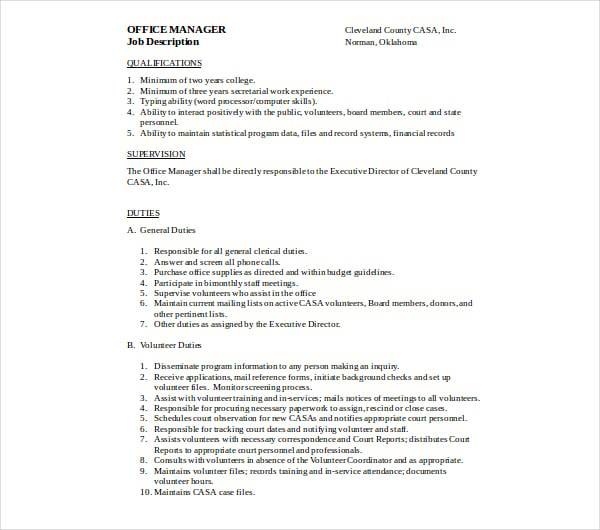
Free Beauty Therapist Hospitality Nurse Job Description
images.template.net
Professional Job Description for Hiring New Employees
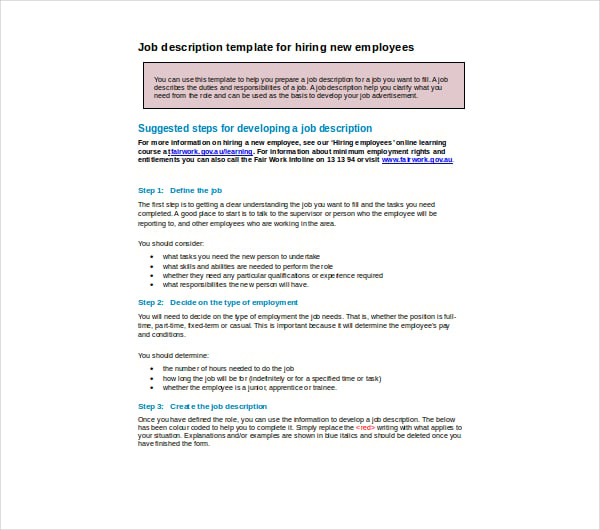
Details
File Format
- DOC
Size: 41 KB
Download
Free Customer Service Intern Job Description Template
kintera.org
Restaurant Receptionist Specification Job Description Template
images.template.net
Details
File Format
Download
Free Graphic Designer Job Posting Description Template
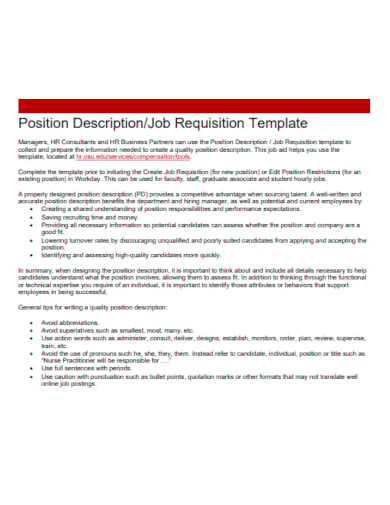
Details
File Format
Size: 282 KB
Download
Free Supervisor Job Profile Description Template
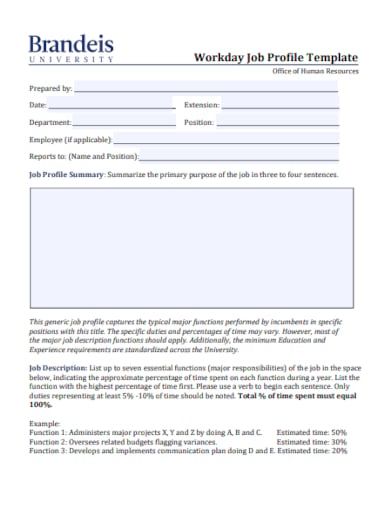
Details
File Format
Size: 323 KB
Download
1. How to Use Our Job Description Templates
If you are working for a particular company, you should be knowing what a job description looks like. It essentially contains a brief description or an introduction to the job category and an idea of what that particular position or post entails. It also includes a sample list of all responsibilities and requirements that come with the job. You can also see more on Therapist Job Description.
When you download the template, make sure you go through the template in detail. The details provided in the template should match the job description in Pages you have in mind. However, you are completely free to add or remove any details that you feel like. You can also see more on Volunteer Job Description.
2. Why Should You Go for Job Description Templates?
When it comes to recruitment and hiring new talent, the sample job description becomes almost as important as the resume itself. You want the best possible talent for your company, don’t you? Of course, you only want the best employees to come and work for you. You can also see more on Sales Assistant Job Description Templates.
To make sure you get that, you need to come up with lucrative simple job descriptions. The description should be such that it immediately catches the attention of prospective employees waiting for their dream jobs. And that is precisely what you get with these templates here. Also, the templates make the tedious job of writing a job description in PDF much easier. You may also see our recruiter job description templates.
3. What Are the Benefits of Job Description Templates?
The job description in Google Docs that you see here come with a large number of benefits. Some of them are as follows:
- The basic job description templates have been designed by professionals who are perfectly aware of the various kinds of job opportunities there are. Based on that, there are numerous kinds of modern templates here.
- The templates that you see here are 100 % editable and customizable for your benefit.
- The word templates you see here come in a format that is already set to print. That means, once you download it, you can start printing your job description layout if you are satisfied with the layout.
If you are planning to hire new talent for your company, then you need to pay special attention to the kind of job description outline you write. It will determine the kind of applicants you attract. All you have to do is go through the various templates present here and download the ones that you think are appropriate. You may also check out our product manager job description templates.
More in Job Descriptions
How would you describe yourself? When we walk into an interview, we’re trying to project the best possible version of ourselves. We want to appear confident, qualified, and ready to take on the job position. It’s difficult to keep up appearances in an interview, no matter how good you are in the interview itself. This is especially so when the hiring manager starts throwing curveball questions. One such question is “describe yourself in one word.”
It may seem simple enough to pick one positive word. The problem is, that question could be followed by a request to elaborate on your answer. And that could present a much more challenging answer.
When you think about it, it’s the ultimate elevator pitch request. And if you’re asked this question in a job interview. Then how can you break down everything you can bring to the table in just one single word? Or a series of words?
In this guide, we’re going to tackle why interviewers ask this question. And how to craft the best answer. And what answers to emulate and which to avoid.
Why Do Interviewers Ask “Describe Yourself?”
Hiring managers do this for the same reason they ask most questions in an interview. They want to know more about you to determine if you are a good fit for the company or position.
The hiring manager is trying to get to the essence of who you are as a person. And as a professional addition to their team. Or, at the very least, they want to confirm based on first impressions, which you think you may be. The relationship you have with yourself can have a tremendous impact on how you live and work. And this question is meant to put you on the spot to reveal your confidence or insecurity.
Pro tip: In a Job Outlook Survey performed by NACE in 2019. They mentioned that communication skills were amongst the highest hard skills desired by employers. Interview questions like «describe yourself in one word» challenge that ability.
This question is usually used as a setup question to probe deeper. Since many potential hires will use a grand word to describe themselves. But will then struggle to give an example of how that word is exemplified in professional day-to-day behavior. “Describe yourself in one word” also gives the hiring manager insight into how realistic the potential hire is being in their own self-reflective view. We’ll dip more into this in the next few sections.
What Are Hiring Managers Trying to Find Out by Asking “Describe Yourself?”
As we mentioned before, the hiring managers want to paint a picture of who you are. And who you think you are. And how well you can elaborate on a simple one-word answer. Or in a short introduction that uses key skills, keywords, and benefits for the company to describe yourself.
When it comes down to it, they are looking for specific answers in your initial short answer and a subsequent longer answer. And they are looking for honesty, humbleness, and accuracy as well.
For example, let’s say you are interviewing for a position in customer service. Your hiring manager asks you to describe yourself in one word. The word you choose is “friendly.” They ask you to elaborate on this. A negative answer would be one that doesn’t relate to a professional setting. And if you answer with something along the lines of “My friends all say I’m very friendly.” That says nothing about your friendliness in the workplace. However, a good answer would contain an example of an experience in which a customer told you that you were very friendly. And did a great job of taking care of their issue. This shows the interviewee that you have real-world professional examples to back up your claims.
It’s also worth noting that your hiring manager is also likely looking for inconsistencies. And if you came into the interview with an attitude. And then describe yourself as “friendly.” It could make you seem inconsistent, unaware of yourself, or plain dishonest.
How to Answer “Describe Yourself” Effectively
This question is usually used as a setup question to probe deeper. And since many potential hires will use a grand word to describe themselves. But will then struggle to give an example of how that word is exemplified in professional day-to-day behavior. “Describe yourself in one word” also gives the hiring manager insight into how realistic the potential hire is being in their own self-reflective view. We’ll dip more into this in the next few sections.
What interviewees should really do is think about the position and the company. And what qualities would be excellent for someone to be successful in that role. Then, choose one of those words that apply to you.
Describing yourself
When describing yourself, pick keywords that connect together and describe what can be offered to the business. An answer example would be the following.
«I’m a reliable, dependable, adaptable professional. Looking to utilize my skills as a sales professional to apply myself to a business looking to disrupt a major industry.»
Describing yourself in one word
Take the time to brainstorm some possibilities for good words to choose from. And make sure that you are prepared to follow up your answer with an explanation. Your hiring manager may or may not do this, but most of the time will do so.
When it comes down to it, the “one word” part is easy. The explanation is a whole other ballpark.
The safest answer to rely on would be a work ethic word. Answer with a work ethic word that best describes you as accurately as possible. And while also having a specific behavioral example from past professional experience or academic experiences. This is an excellent opportunity to tell a brief but relevant story. A story about when you went above what you were expected to do in your work or school life. It’s wonderful to take time while answering this question. And to show that you’re thinking about the answer. But this is definitely a question you want to think about in advance. Be prepared in advance for how to answer the question and explain your answer with examples or brief stories to back it up.
Describe Yourself Examples
Here are example answers for when a hiring manager asks you to describe yourself.
Using skills to describe yourself
«I’m an adaptable professional with previous sales experience. Looking to utilize my software engineering skills to assist marketing teams to increase leads. And subsequently, increase sales and growth.»
Utilizing keywords to describe yourself
«I’m a trustworthy and open-minded professional. This work environment is one that embraces innovation. And when I work with my colleagues, I want to encourage them to ask broad questions. And use quantitative research to address major problems. I aim to influence, encourage, and lead a meticulous team of engineers toward success.»
27 Bad (SHOULDN’T use) Example One Word Answers to «Describe Yourself In One Word»
These answers are less than ideal for a number of reasons. Some of them are just too underwhelming while others are a bit too boastful. Avoid these at all costs.
- Intelligent
- Superior
- Perfect
- Obsessive
- Humble
- Straightforward
- Lazy
- Uncooperative
- Rude
- Vindictive
- Entitled
- Absent
- Dramatic
- Argumentative
- Victim
- Arrogant
- Selfish
- Late
- Defensive
- Disagreeable
- Flaky
- Apathetic
- Disorganized
- Restless
- Unfocused
- Forgetful
- Secretive
84 Best Example Answers (SHOULD use) To «Describe Yourself In One Word»
Take the time to consider whether that one-word description is true of your personality. Your hiring manager may ask you to elaborate on why that word is such a good descriptor of you as a person.
- Dedicated
- Versatile
- Valuable
- Flexible
- Analytical
- Inventive
- Exciting
- Thoughtful
- Powerful
- Practical
- Proactive
- Productive
- Professional
- Meticulous
- Quick
- Balanced
- Achiever
- Knowledgeable
- Leader
- Diplomatic
- Logical
- Initiator
- Original
- Honest
- Assertive
- Attentive
- Direct
- Broad-Minded
- Committed
- Conscientious
- Dynamic
- Customer-Oriented
- Persistent
- Mature
- Methodical
- Motivated
- Objective
- Tenacious
- Sociable
- Friendly
- Realistic
- Reliable
- Resourceful
- Respectful
- Responsible
- Creative
- Confident
- Traditional
- Trustworthy
- Unconventional
- Unique
- Eclectic
- Observant
- Innovative
- Imaginative
- Thorough
- Outgoing
- Particular
- Patient
- Active
- Positive
- Consistent
- Compassionate
- Incredible
- Independent
- Precise
- Mediator
- Emotional
- Cheerful
- Forgiving
- Responsive
- Candid
- Industrious
- Cooperative
- Successful
- Motivated
- Strategic
- Enthusiastic
- Organized
- Focused
- Steady
- Creative
- Active
- Helpful
If You’re Asked To Explain Why
If the interviewer asks you to explain why you chose that word. Then you’re going to need to line it up to a reason that makes you unique. And if you use the answers above, you should find an ample reason for why you chose that word. Be sure that you use some mixture of your personality along with the reason why you value that word.
A good reason for the word choice will be a small working story. Integration of your personality. And the reason why you value the word for the work environment.
Related Hiring Resources
- 55 Top Interview Questions and Best Answers
- Thank You Email After Interview (Samples, How to Write It)
- 85+ Resume Objective Examples by Job Title
- 200 Phone Interview Questions (+ Answers)















